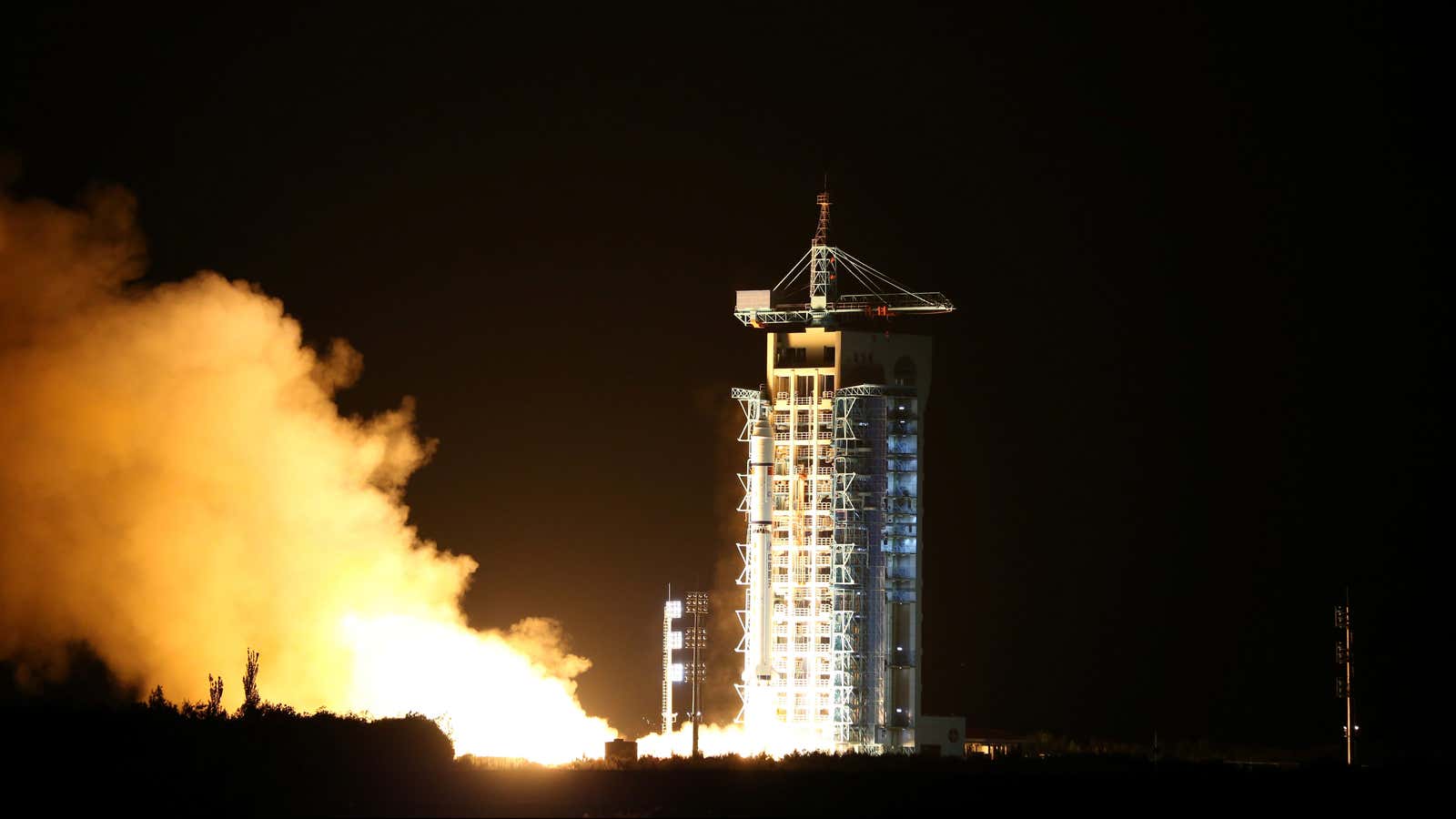The premise of After The Flare, a new space fantasy novel by Deji Bryce Olukotun, is that a solar flare has hit earth and destroyed electricity grids followed by devastating cyber attacks that paralyze all communication. This all sounds plausible until you learn the only functioning space program left on earth is supposed to be in Nigeria.
Of course, the only reason space programs in sub Saharan African countries might seem unlikely is because there’s a common belief developing countries have more pressing priorities with everything from poverty and food security to disease and childhood mortality. Yet, as a paper published by Harvard Kennedy School (pdf) last month argues, space programs should play a vital role in kickstarting innovation programs in developing countries to address many of these challenges.
The declining costs of smaller satellites along with new applications and innovations in recent years have made the implementation of space technology attainable for many African nations. In the past, the capital-intensive nature of space projects would have have been considered wasteful for developing countries. But that’s always missed the point the authors say: “Assimilating space technology has the potential to accelerate the attainment of national development goals and further indicates a visionary and technology-savvy society.”
Of the many vital uses of such programs, using satellites to acquire geospatial information and data is near the top of the list. We often talk about the lack of data in African countries and its debilitating impact. But owning your own satellites will provide more timely and accurate information for governments to help with public health, early-warning systems, disaster management and agribusiness decision-making rather buying data off third parties.
But this is not just about the direct uses of satellites and geospatial data but also promoting a home grown culture of innovation where the country develops capabilities and gain technological learning to accelerate development. “By designating funding and resources toward a small satellite and data analysis program, a country can transfer skills and knowledge from a foreign partner to build domestic capabilities in the management and dissemination of data,” write authors, Calestous Juma, Wesley L. Harris and Peter B. Waswa.
Several African countries now have programs in place or are starting them off for these reasons and also for security implementation. South Africa has been a leader on the continent going as far back as the 1950s. Ultimately, even for a relatively humble ambition as launching a small satellite (as against putting a person on the moon), African governments will need to have a nonpolitical, long-term vision and encourage the development of local talent to gain the full benefits of a space program.
